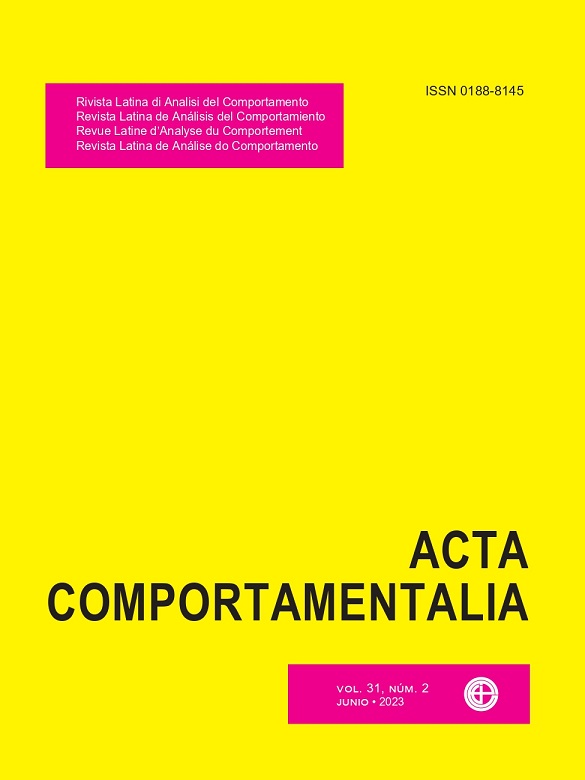Aversive control of behavioral variability: a narrative review
DOI:
https://doi.org/10.32870/ac.v31i2.85838Keywords:
behavioral variability, operant variability, aversive control, negative reinforcement, escape, avoidance, punishmentAbstract
Since the 1980s, studies on operant behavioral variability have almost exclusively investigated positive reinforcement contingencies. However, this scenario has changed somewhat in the past two decades, so studies on aversive control of behavioral variability are now available. Considering that this literature has not yet been systematized, the present study aimed to review the experimental research on behavioral variability controlled by negative reinforcement or punishment. Scientific articles, doctoral dissertations, and master theses in which operant variability was the dependent variable, and negative reinforcement or punishment was the independent variable composed the sample. Four experiments using escape contingencies, three using avoidance contingencies, and one involving positive punishment were found. The results evidence that behavioral variability can be installed and maintained through escape and avoidance contingencies with non-human subjects or human participants. All studies reported higher levels of behavioral variability under the Lag n contingency than in the Yoke contingency. Contrarily, there is no evidence that behavioral variability can be negatively or positively punished. In the only study on punishment reported, the presentation of the aversive stimulus was contingent on response sequences that did not meet the variability criterion of the Lag n contingency, while variable response sequences were positively reinforced. As a result, behavioral variability was slightly disrupted by positive punishment. The experimental and ethical advances in understanding aversive control of behavioral variability are highlighted, as well as the limits to a broader knowledge of the phenomenon. Finally, it is argued that future reviews should analyze behavioral variability under conditions in which the organism has no control over the environment (e.g., extinction, conditioned suppression, and learned helplessness arrangements).
Downloads
Downloads
Published
How to Cite
Issue
Section
License

<a rel="license" href="http://creativecommons.org/licenses/by-nc-sa/4.0/"><img alt="Licencia de Creative Commons" style="border-width:0" src="https://i.creativecommons.org/l/by-nc-sa/4.0/88x31.png" /></a><br />Este obra está bajo una <a rel="license" href="http://creativecommons.org/licenses/by-nc-sa/4.0/">licencia de Creative Commons Reconocimiento-NoComercial-CompartirIgual 4.0 Internacional</a>.






